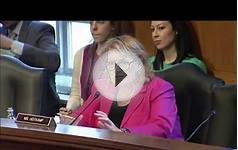 This week commemorates two important dates in United States history. Obviously, Independence Day, but it’s also the anniversary of the Morrill Act of 1862—the statute that established land-grant universities in the U.S. and ensured that every American could have access to a college education. In celebration, we’re exploring the history of higher education in America through an unexpected lens. In this first installment, we look at the influential role education played in both the life of an explorer and in the establishment of our country.
This week commemorates two important dates in United States history. Obviously, Independence Day, but it’s also the anniversary of the Morrill Act of 1862—the statute that established land-grant universities in the U.S. and ensured that every American could have access to a college education. In celebration, we’re exploring the history of higher education in America through an unexpected lens. In this first installment, we look at the influential role education played in both the life of an explorer and in the establishment of our country.
I’ve just finished writing a biography of Zebulon Pike (Citizen Explorer: The Life of Zebulon Pike, Oxford University Press, 2014). Pike is best known for leading a U.S. military expedition to Colorado and the southwestern reaches of the Louisiana Purchase during the era of Lewis and Clark. In 1806, he sighted and unsuccessfully attempted to climb the mountain now named for him, Pikes Peak. Surprisingly, one thing I learned in the course of my research was just how important education was not only to his formation but also to the solidification of the early United States.
 Born during the American Revolution, the son of a Continental Army soldier, Pike came from a modest background. During his childhood and young adult years, the United States was a young and fragile nation; a big experiment in republican government, which many believed would not succeed. Some openly rebelled against it, for example, the 1786 Shays’ Rebellion and the 1794 Whiskey Rebellion. Others actively tried to woo citizens’ loyalties away from the nation, for example the Spanish conspiracies of the 1790s and the Aaron Burr conspiracy of 1805-1807.
Born during the American Revolution, the son of a Continental Army soldier, Pike came from a modest background. During his childhood and young adult years, the United States was a young and fragile nation; a big experiment in republican government, which many believed would not succeed. Some openly rebelled against it, for example, the 1786 Shays’ Rebellion and the 1794 Whiskey Rebellion. Others actively tried to woo citizens’ loyalties away from the nation, for example the Spanish conspiracies of the 1790s and the Aaron Burr conspiracy of 1805-1807.
In this context, it was critical to the nation’s survival that Pike and many others gave their loyalties to the republic.
His nationalism sprang from the alignment he perceived between his own self-interests and the interests of his nation. As a young man, he came to believe that the nation provided him a genuine opportunity for personal advancement and that the way to achieve that was by self-improvement through education.
There was no formal public education system in the United States at the time, so Pike sought his knowledge through the informal tutoring of a neighbor as a young boy and later through whatever training could be acquired at the army camps at which his father was stationed. As a young adult, he pursued it entirely on his own.
By candlelight deep into the night, he studied mathematics, languages, literature, manners, and military tactics. By the time he received his first officer’s commission in 1799, Pike had taught himself French and basic mathematics, and had become, according to one of his military buddies, “a tolerable good [E]nglish scholar.”






